Students interested in accounting, economics, business, or the stock market may consider researching affordable online Master’s of Finance degrees to give them the education, knowledge, and skills they need to pursue a variety of careers in this industry. Graduates wielding a master’s degree in finance could join the ranks of management at corporations throughout the U.S., or they could find work on Wall Street or with large investment companies. Even if you are not sure of the exact career path you wish to take, an online finance master’s degree is still an ideal educational path, because nearly every business has a need for a candidate who is well-versed in one critical topic: how to make money.
Of course, the world of finance is much more complex than simply making money. Companies seek financial professionals who can also help the company grow, maximize their return on investments, diversify financial portfolios, and minimize risk. In addition, there is a wide assortment of career paths that are included in this field, ranging from financial manager and financial analyst to accountant, auditor, or personal financial advisor. To learn more about this field and the careers you can pursue after completing a graduate program in finance, check out our list of the top 25 most affordable online Master’s in Finance degrees.
Methodology
Students who are just starting out on their journey of selecting a Master’s in Finance degree program may feel overwhelmed or unsure of where to begin in their search. We understand how challenging it can be to compare degree programs, schools, and tuition rates, which is why we developed the following list of the top 25 most affordable online Master’s in Finance degrees. We consulted U.S. News & World Report, each school’s website, and the National Center for Education Statistics (NCES), where we conducted a search for the term “online Master’s of Finance degree.” After reviewing the initial pool of 70 schools, we narrowed down our list into the top 25 programs based on the following ranking methodology.
Average Cost of Attendance
When narrowing down your options for an online master’s degree in finance, it goes without saying that tuition will likely play a significant role in your selection, regardless of your chosen career path. Students at both the undergraduate and graduate levels often look at the cost of a program first before they even consider all it has to offer because they need to ensure that it is affordable and within their budget. After all, why spend time researching a program and its requirements if you know from the start that it costs more than you can pay? Since the cost of attendance is arguably one of the most important factors to think about when choosing a school, we felt it necessary to include it in our ranking. Below, you will find both in-state and out-of-state tuition rates for each institution. However, we awarded points based only on the total program cost for in-state graduate students.
Points:
Under $20,000: 3 points
$20,001 to $30,000: 2 points
$30,001 or more: 1 point
Student-to-Faculty Ratio
There are benefits and drawbacks to attending both large schools and small schools. For example, larger colleges and universities may offer more majors and opportunities for internships and extracurricular activities, but they may not provide one-on-one mentoring or opportunities for students to investigate areas in which they are particularly interested. By the same token, smaller schools may not have as much to offer in the way of majors, but the smaller class sizes may be more important to students seeking individualized studies and close relationships with peers and faculty members. Below, we have awarded the most points to schools that reported student-to-faculty ratios of fewer than 10 students and the fewest amount of points to schools that reported ratios of more than 15 students.
Points:
10:1 or lower: 3 points
11:1 to 15:1: 2 points
Higher than 15:1: 1 point
Ranking Top 25 Online Master’s of Finance Degrees
25. California Lutheran University
Thousand Oaks, California
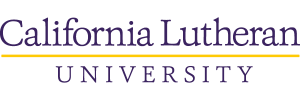
Points: 2
Program Website
California Lutheran University offers two tracks for students pursuing the online Master of Science in Financial Planning. Focusing on the “art and science” of financial planning, students have the opportunity to choose between an MS degree that prepares students for CFP certification and an MS degree designed only for students who are already CFP-certified. The latter replaces foundation-level financial planning classes with both interdisciplinary studies and advanced-level courses. Core areas of study include estate planning, risk management and insurance, tax management and strategy, behavioral finance, and investment and portfolio management. Students complete 12 courses for a total of 36 program units, and they can earn their degree within 12 to 24 months. Coursework is delivered entirely online and offered year-round in five eight-week terms.
Degree Options:
Online MS in Financial Planning
In-State Tuition: $30,780
Out-of-State Tuition: $30,780
Student-to-Faculty Ratio: 16:1
24. Penn State World Campus
University Park, Pennsylvania

Points: 2
Program Website
The Master of Finance at Penn State World Campus is comprised of 30 credits and prepares students for various professional certifications such as the CFA certification. The online program uses a cohort model in which all students start and complete the program at the same time, and it is designed for students seeking careers in investment management or financial management and who have already completed some coursework in microeconomics, financial management/corporate finance, and business statistics. Students investigate topics centered on multinational finance, financial and speculative markets, corporate financial modeling, quantitative methods, and financial accounting theory. A one-week required residency is held on-campus near Philadelphia after the start of the fourth course.
Degree Options:
Master of Finance
In-State Tuition: $30,750
Out-of-State Tuition: $30,750
Student-to-Faculty Ratio: 16:1
23. Florida Institute of Technology
Melbourne, Florida

Points: 3
Program Website
The Florida Institute of Technology confers an online Master of Business Administration with a concentration in accounting and finance through the IACBE-accredited Nathan M. Bisk College of Business. The 36-credit curriculum is available entirely online and exposes students to a number of topics, including legal responsibility, e-commerce, and investment management. Students take 21 credits of core courses in marketing management, organizational behavior, financial management, and managerial accounting as well as 12 credits of specialization classes in financial management policy and strategic cost management. A three-credit strategic management capstone course rounds out the program. Graduates are prepared for leadership positions such as finance operations director, senior financial analyst, chief financial officer, and director of accounting.
Degree Options:
MBA in Accounting & Finance
In-State Tuition: $32,256
Out-of-State Tuition: $32,256
Student-to-Faculty Ratio: 15:1
22. Creighton University
Omaha, Nebraska

Points: 3
Program Website
Creighton University’s Master of Finance program allows students to take classes on-campus, online, or both. Students may complete the 33-credit program in as few as two years, and the school accepts applications on a rolling basis. To earn the online master’s in finance degree, students must complete 33 credits in core areas such as business policy and managerial action, leadership and organizational behavior, portfolio management, and financial statement analysis. Students choose from electives such as economic analysis for managers, the economics of investment management, or a seminar in applied managerial economics. Creighton also offers a Master of Investment Management and Financial Analysis as well as a dual degree in finance and business administration, which consists of 48 credit hours and three years of study.
Degree Options:
Master of Finance
Master of Investment Management and Financial Analysis
In-State Tuition: $32,256
Out-of-State Tuition: $32,256
Student-to-Faculty Ratio: 11:1
21. Walsh College
Troy, Michigan

Points: 3
Program Website
Walsh College’s Master of Science in Finance degree prepares students to combine real-world, cutting-edge experience with a deep understanding of financial theories. Students take classes over four 11-week semesters, and courses are available in small classroom settings, entirely online, or a combination of both. Finance coursework focuses on combining finance practice and theory for business growth strategies. Students will delve into topics such as investments, financial management, financial statement analysis, global economics, leadership communication, and managerial accounting. Two concentrations are offered: financial services and financial management. Graduate students may also wish to combine the MSF program with an MBA and earn two graduate degrees in one concise program.
Degree Options:
Master of Science in Finance (MSF)
In-State Tuition: $30,615
Out-of-State Tuition: $30,615
Student-to-Faculty Ratio: 13:1
20. Davenport University
Grand Rapids, Michigan

Points: 3
Program Website
Davenport University’s 39-credit Master of Business Administration degree is designed for mid- to senior-level managers looking to sharpen their professional skills as well as for students early in their entrepreneurial endeavors and business careers. Students complete 24 credits of core courses in marketing strategies, managerial accounting and economics, corporate finance, and operations and supply chain management. Twelve credits in concentration courses are also required, including topics in money, banking, and treasury management as well as money and capital markets, advanced financial management, and mergers, acquisitions, and consolidations. The program culminates with a three-credit business integration capstone course.
Degree Options:
Master of Business Administration – Finance Concentration, MBA
In-State Tuition: $30,276
Out-of-State Tuition: $30,276
Student-to-Faculty Ratio: 13:1
19. Johnson and Wales University
Providence, Rhode Island

Points: 3
Program Website
Johnson and Wales University offers a Master of Science in Finance that consists of eight-week courses that can be completed in fewer than two years. Students can choose from one of two tracks designed to help them become either a chartered financial analyst (CFA) or a financial planner. Those following the financial planning track are eligible to sit for the CFP certification examination. Graduate students will take five core courses in financial reporting and control, investment and portfolio management, statistical methods, personal financial planning, and financial management. Five elective courses are required as part of the program, but the classes will depend on which track a student is pursuing. JWU also confers an online MBA degree with a concentration in finance.
Degree Options:
Master of Science – Finance
Master of Business Administration – Finance
In-State Tuition: $27,468
Out-of-State Tuition: $27,468
Student-to-Faculty Ratio: 19:1
18. Auburn University
Auburn, Alabama

Points: 3
Program Website
Auburn University provides an AACSB-accredited online Master of Science in Finance degree that consists of a minimum of 30 semester hours of coursework. Students may transfer a maximum of six graduate credit hours from another university. Required courses include topics in cost analysis and systems, financial analysis, and applied financial management, while finance elective courses delve into advanced financial systems, security analysis and management, investments, real estate finance, financial engineering, and multinational financial management. AU also provides an online dual degree in which students may earn an MSF and an MBA with a concentration in finance with one or two additional semesters of coursework beyond the MSF requirements.
Degree Options:
Master of Science in Finance – Online
Master of Business Administration
In-State Tuition: $26,250
Out-of-State Tuition: $26,250
Student-to-Faculty Ratio: 19:1
17. University of Michigan Dearborn
Dearborn, Michigan

Points: 3
Program Website
The College of Business at the University of Michigan-Dearborn confers a Master of Science in Finance that provides specialized education for dynamic careers in investment management, financial institutions, and corporate finance. The program is available on-campus, online, or a combination of the two, and students may complete the program within 12 to 16 months of full-time study. The corporate finance concentration requires 30 to 33 credit hours of study and prepares students to work with companies’ financial strategies and tactics, while the investments concentration also requires 30 to 33 credit hours of study and prepares students to construct investment portfolios, analyze investments, and advise clients on portfolio strategy and investment selection. The school welcomes applications regardless of previous work experience or undergraduate major.
Degree Options:
Master of Science in Finance
In-State Tuition: $25,195
Out-of-State Tuition: $38,695
Student-to-Faculty Ratio: 17:1
16. Bellevue University
Bellevue, Nebraska
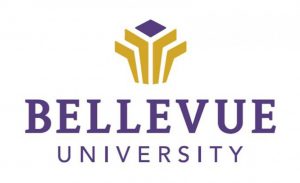
Points: 3
Program Website
Bellevue University’s online master’s degree in strategic finance allows students to examine a number of both business and financial strategies. To align their studies with their professional goals, students may choose from more than 20 concentrations in finance, accounting, business, management, marketing, entrepreneurship, and more. All MSSF students take nine courses for a total of 27 credit hours of study in areas such as leadership and communication, cash management, investments, risk management, financial management, economics, accounting, business analysis, and financial reporting and analysis. Most concentrations consist of three courses for an additional nine credits of study. Students must declare their concentrations during the first term of the MSSF program.
Degree Options:
Master of Science in Strategic Finance
In-State Tuition: $20,700
Out-of-State Tuition: $20,700
Student-to-Faculty Ratio: 31:1
15. University of Massachusetts Lowell
Lowell, Massachusetts
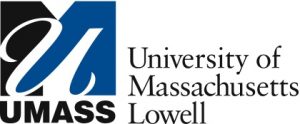
Points: 3
Program Website
The University of Massachusetts Lowell is a top-ranked, AACSB-accredited university that offers a Master of Science in Finance degree designed for working professionals. Available entirely online, the program consists of 10 courses: five required core finance courses and five finance concentration elective courses. Areas of study include international financial management, security analysis and portfolio management, financial statement analysis, financial derivatives, and corporate finance. Courses are taught by full-time faculty members who are professionals in their fields and who bring real-world experience to online learning. Undergraduate majors must complete classes in microeconomics, business financial analysis, and financial accounting prior to applying to the program.
Degree Options:
Master of Science in Finance
In-State Tuition: $19,650
Out-of-State Tuition: $19,650
Student-to-Faculty Ratio: 17:1
14. University of St. Francis
Joliet, Illinois
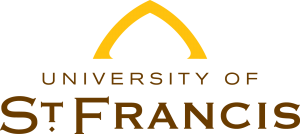
Points: 4
Program Website
The Master of Business Administration at the University of St. Francis is available entirely online and can be completed in 12 to 18 months of full-time study. The MBA includes 12 hours of core courses in managerial accounting, finance, and economics as well as an experiential learning project. Students have the option to pursue a concentration in finance by taking 12 additional credit hours in areas such as derivatives valuation, international finance, advanced financial management, and entrepreneurship for small business finance. A finance certificate is also available. USF’s School of Business and its programs are accredited by the ACBSP.
Degree Options:
MBA With a Finance Concentration
In-State Tuition: $28,728
Out-of-State Tuition: $28,728
Student-to-Faculty Ratio: 12:1
13. Purdue University Global
West Lafayette, Indiana

Points: 4
Program Website
Students pursuing the online Master of Science in Finance degree from Purdue University Global can choose from two concentration areas: financial planning or financial analysis. Depending on their concentration, graduate students may be eligible to sit for the CFP or CFA exams. Students can expect to devote 20 hours per week to their studies, and each course lasts approximately six weeks. Students are required to complete 56 credits, including 40 core credits and 16 major credits, to graduate through courses in investment management, financial markets, banking, corporate finance, and financial planning. Graduates are prepared for work in credit unions, insurance and finance companies, banks, nonprofit and for-profit businesses, and the local, state, and federal governments.
Degree Options:
Online Master of Science Degree in Finance
In-State Tuition: $27,160
Out-of-State Tuition: $27,160
Student-to-Faculty Ratio: 13:1
12. Southern New Hampshire University
Manchester, New Hampshire

Points: 4
Program Website
The Master of Science in Finance at Southern New Hampshire University prepares graduate students to become leaders with quantitative, decision-making, and real-world financial analysis skills developed through courses in financial markets, advanced economic theory, corporate finance, and investments. Within the 36-credit master’s in finance degree, students can choose from a concentration in either corporate finance or investments and securities. SNHU faculty are finance professionals with experience in the best methods for presenting, reporting, and analyzing financial data for nearly any senior financial position. Graduates are prepared for careers in insurance, risk management, financial planning, and investment banking as well as securities analysis, commercial banking, and corporate finance.
Degree Options:
Master of Science in Finance
In-State Tuition: $22,572
Out-of-State Tuition: $22,572
Student-to-Faculty Ratio: 14:1
11. Tiffin University
Tiffin, Ohio

Points: 4
Program Website
Tiffin University’s 14-month Master of Business Administration degree is available online in two seven-week terms per semester, and students may choose from five start dates in January, March, May, July, August, and October. Core MBA classes are offered on-campus or online, while finance concentration courses are offered exclusively online. Students may complete the 32 to 36 credits required for the program within 14 months of full-time study. Courses delve into the international, national, and local economies, and students explore the performance of commodities, bonds, stocks, and other investments. Students are prepared to work independently in financial management or with an investment firm, nonprofit organization, securities firm, bank, or corporation.
Degree Options:
Master of Business Administration – Finance
In-State Tuition: $22,400
Out-of-State Tuition: $22,400
Student-to-Faculty Ratio: 12:1
10. University of the Southwest
Hobbs, New Mexico

Points: 4
Program Website
The Master of Business Administration at the University of the Southwest boasts small class sizes, online courses starting every eight weeks, digital textbooks included in tuition, and a laptop for students to use throughout the program. The 36-credit MBA in Finance program is designed for students seeking a career in the financial services sector and/or securities licensure. The program includes the practical application of financial techniques, methodologies, and concepts aimed at giving students a competitive advantage. Core course requirements include topics in financial management, marketing concepts and strategies, controllership, business analytics and econometrics, information technology for managers, and leadership. Those pursuing a specialization in finance can earn their degree in as few as 12 months.
Degree Options:
MBA
In-State Tuition: $22,000
Out-of-State Tuition: $22,000
Student-to-Faculty Ratio: 14:1
9. Colorado State University Global
Greenwood Village, Colorado

Points: 4
Program Website
Colorado State University Global confers an ACBSP-accredited online master’s degree in finance that is designed to develop operational skills, international perspectives, and leadership in finance by focusing on career development. Throughout the program, students enhance their abilities, skills, and knowledge in the critical areas of applied research, capital market analysis, investment, and financial management. The 36-credit program consists of eight three-credit core courses in insurance and risk management, investments, corporate finance, bank management, and financial markets and institutions. A finance capstone is required for graduation. Graduate students may choose from 20 specializations to further focus their degree in areas such as project management, international management, strategic innovation and change management, finance, accounting, and applied business management.
Degree Options:
Online Master’s Degree in Finance
In-State Tuition: $18,000
Out-of-State Tuition: $18,000
Student-to-Faculty Ratio: 16:1
8. University of Maryland University College
Largo, Maryland

Points: 4
Program Website
Mid-career professionals such as financial managers and accountants may consider the Master of Science in Accounting and Financial Management from the University of Maryland University College. The program features core courses in strategic financial management, behavioral finance, and financial decision-making as well as auditing, taxation, and accounting. Students can also expect projects for real organizations and companies, analysis of real-time data sets, and studies of real crises facing businesses today. Students complete a three-credit accounting and financial management course as part of the capstone requirement. Graduates are prepared to obtain licensure as a CPA in Maryland or to sit for the Uniform Certified Public Accountant Exam.
Degree Options:
Master of Science in Accounting and Financial Management
In-State Tuition: $16,488
Out-of-State Tuition: $23,724
Student-to-Faculty Ratio: 19:1
7. West Texas A&M University
Canyon, Texas

Points: 4
Program Website
West Texas A&M University’s Paul and Virginia Engler College of Business offers a top-ranked Master of Science in Finance and Economics. Recognized among the best online graduate programs in business for veterans in 2019, the 36-credit-hour MSFE can be completed within two years of full-time study. Courses are available on-campus, online, or a combination of both offerings. Before beginning the program, students must establish proficiency in statistics, accounting, finance, and economics. The MSFE is comprised of 21 graduate hours of core courses in asset valuation, corporate finance, corporate governance, monetary and fiscal policy, the theory of households and firms, quantitative analysis, and international finance. Upon completion of MSFE core courses and electives, students are required to pass a comprehensive exam in order to graduate from the program.
Degree Options:
Master of Science in Finance and Economics
In-State Tuition: $11,049
Out-of-State Tuition: $22,684
Student-to-Faculty Ratio: 20:1
6. Webster University
St. Louis, Missouri

Points: 5
Program Website
Webster University’s Walker School of Business & Technology confers an online, 36-credit-hour Master of Science in Finance degree that is designed to provide a comprehensive and quantitative examination of the field of finance. Students will take classes in corporate finance, international finance, institutions and financial markets, investments, and finance as well as supporting coursework in the closely related fields of economics and accounting. A capstone experience, with a significant focus on acquisitions and mergers, ties together the major finance topics and exposes students to the analysis and literature of the field. Students looking to seek certification as a CFP or CFA will have the opportunity to select electives to meet this goal, including courses in portfolio management, advanced investments, and financial statement analysis. Webster also offers a 45-credit-hour dual degree in which students may earn an M.S. in Finance and an MBA within the same program.
Degree Options:
Master of Science in Finance
MBA/MS Finance Dual Degree
In-State Tuition: $28,080
Out-of-State Tuition: $28,080
Student-to-Faculty Ratio: 9:1
5. Brenau University
Gainesville, Georgia

Points: 5
Program Website
Brenau University’s Master of Business Administration in Finance is designed to provide students with the skills and knowledge they need to enter into the field of finance or advance into a position in upper management. This 45-credit, 15-course program leads to an MBA degree with a certificate in finance. Available entirely online, students will explore the major areas of the field through 15 hours of major coursework that includes topics in international finance, risk management, corporate financial policy, valuation, and investments. Core courses are offered in strategic management and policy, financial management, and marketing management.
Degree Options:
Master of Business Administration in Finance
In-State Tuition: $25,020
Out-of-State Tuition: $25,020
Student-to-Faculty Ratio: 9:1
4. University of Saint Mary
Leavenworth, Kansas
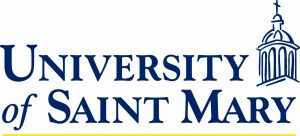
Points: 5
Program Website
The online Master of Business Administration with a concentration in finance from the University of Saint Mary is an accelerated program that can be completed within one year. Since students complete two years’ worth of courses in half the time, they see a faster return on investment compared to a traditional two-year MBA program. The degree requires a total of 36 graduate-level credits, which include nine core courses in managerial economics, human resource management, marketing management, organizational management, accounting, and managerial finance as well as classes in financial decisions, financial and capital issues, and advanced financial topics. Graduates are prepared for careers as sales managers, economists, personal financial advisors, financial managers, and financial analysts.
Degree Options:
Online MBA With a Finance Concentration
In-State Tuition: $22,680
Out-of-State Tuition: $22,680
Student-to-Faculty Ratio: 9:1
3. Mississippi College
Clinton, Mississippi

Points: 5
Program Website
Mississippi College’s Master of Business Administration with a concentration in finance provides graduate students with a greater understanding and knowledge of the field of finance and offers an in-depth study in areas such as international finance, financial institutions, financial markets, investments, and corporate finance. The only school in Mississippi to offer a fully online finance program, MC requires prerequisites in marketing, business finance, business software applications, and elementary accounting prior to starting the degree. The 30-hour MBA in Finance program is comprised of courses in advanced financial management, accounting issues in business decisions, policy formulation and administration, quantitative management, and financial management.
Degree Options:
Finance MBA
In-State Tuition: $18,750
Out-of-State Tuition: $18,750
Student-to-Faculty Ratio: 14:1
2. University of Houston-Clear Lake
Houston, Texas

Points: 5
Program Website
The University of Houston-Clear Lake confers an AACSB-accredited online Master of Science in Finance that can be completed in 18 months. Offered through UHCL’s College of Business, graduate students receive the comprehensive preparation and training they need to excel in the world of finance. The 30-credit-hour program is ranked among the top online graduate business programs in the country by U.S. News & World Report and consists of courses in portfolio management, international finance, investment management, corporate finance, and quantitative methods in finance. All faculty members hold doctoral degrees and hail from renowned industries and businesses, and graduates are prepared for careers in investment and commercial banking, financial planning, corporate finance, money management, and real estate investment.
Degree Options:
Finance M.S. Online
In-State Tuition: $15,873
Out-of-State Tuition: $31,743
Student-to-Faculty Ratio: 15:1
1. University of Scranton
Scranton, Pennsylvania

Points: 5
Program Website
The University of Scranton’s online Master of Science in Finance provides students with specialized knowledge of hedging strategies, capital budgeting techniques, risk metrics investment criteria, foreign exchange markets, financial markets and institutions, and financial securities. It may also help to prepare graduate students for professional certifications, including the Certified Financial Planner (CFP) and the Chartered Financial Analyst (CFA). The 30-credit program can be taken on a part- or full-time basis, and full-time students may earn their degree within 12 months. The program is comprised of two electives and eight core courses, but students may need to take foundational classes in finance, economics, accounting, and statistics if they hold a bachelor’s degree in an unrelated field.
Degree Options:
Master of Science in Finance
In-State Tuition: $15,300
Out-of-State Tuition: $15,300
Student-to-Faculty Ratio: 12:1
Frequently Asked Questions
What are the Career Options for a Master’s of Finance Degree?
Earning an online Master’s of Finance degree leads to a number of finance-related fields and career paths. Most graduates with a degree in finance seek careers in which they help organizations or individuals manage their finances and budgets more effectively. Responsibilities may include financial planning, investment advice, and financial data analysis. Students who excel in finance-related careers tend to enjoy organization, analysis, communication, and math as well as detail-oriented work. Four f the most popular career options for a master’s of finance degree include:
- Personal Financial Advisors: These professionals advise others about a number of financial issues, including retirement, college savings, mortgages, insurance, estate planning, taxes, and investments. Their goal is to teach and help their clients to better manage their personal finances. Although a bachelor’s is considered the minimum educational requirement for this position, a master’s allows for better career opportunities.
- Accountants and Auditors: These professionals assess the financial operations of organizations in order to help them run more efficiently. They may also be tasked with examining and preparing financial reports, ensuring companies pay their taxes correctly, and checking financial records and tax preparations for accuracy. They often work extra hours during the end of the budget year or tax season. A bachelor’s is typically required, but a master’s may be preferred for some positions.
- Financial Analysts: These professionals advise businesses and people about various investment decisions after analyzing the way their stocks, bonds, and other investments are performing based on the current market. Again, a bachelor’s is required, but a master’s can open the door to a higher salary and opportunities for career advancement.
- Financial Managers: These professionals typically begin as securities sales agents, auditors, financial analysts, or accountants before becoming financial managers. They are responsible for directing investment activities for their clients, conducting long-term financial planning, and creating financial reports. Prior experience and a bachelor’s is required, but a master’s can lead to better and more advanced employment prospects.
How Much Can You Earn in This Field?
Many students who earn an online graduate finance degree seek careers as financial managers or financial analysts. There are a number of factors that can affect one’s salary for this field, including geographic location, workplace, level of professional experience, and level of academic experience. According to the U.S. Bureau of Labor Statistics (BLS), financial managers reported an average yearly salary of $125,080 in May 2017, the most recent data available. The highest 10 percent earned more than $208,000, while the lowest 10 percent earned less than $66,480. The top-paying industries and average yearly salary for this occupation include:
- Technical, scientific, and professional services: $147,040
- Management of enterprises and companies: $141,890
- Manufacturing: $124,120
- Insurance and finance: $123,250
- Government: $110,610
Moving down the scale in terms of salary, personal financial advisors reported earnings of $90,640 in May 2017. The highest 10 percent earned more than $208,000, while the lowest 10 percent earned less than $40,800. The median annual wages for these professionals in the top industries in which they worked include:
- Commodity contracts, securities, and other financial investments and related activities: $98,560
- Management of enterprises and companies: $82,330
- Credit intermediation and related activities: $78,550
- Insurance carriers and related activities: $70,290
The BLS also reports that financial analysts earned an average yearly salary of $84,300 in May 2017. The top 10 percent earned more than $165,580, while the lowest 10 percent earned less than $51,780. The top-paying industries for this occupation include securities, commodity contracts, and other financial investments and related activities as well as technical, scientific, and professional services. Other high-paying industries include insurance carriers and related activities, credit intermediation and related activities, and management of enterprises and companies.
Are There Any Professional Organizations for Master’s of Finance Graduates?
Both current students and recent graduates can benefit from joining a professional organization dedicated to the world of finance. Professional organizations not only educate students about their chosen career paths, but they offer a host of benefits such as networking events, active job boards, online training and continuing education opportunities, and other services for career-ready students and graduates. Below are several of the most well-known professional organizations to consider joining if you are pursuing a career in the field of finance:
- National Association of Personal Financial Advisers
- International Financial Management Association
- American Finance Association
- The Association for Finance Professionals
The finance industry is vast and encompasses a range of disciplines ranging from accounting, taxation, and economics to corporate finance, investments, and financial markets and institutions. Within these fields, one will find positions such as financial manager, personal financial advisor, financial analyst, accountant, and auditor, to name a few. Regardless of the specific career path you intend to follow, we hope that our list of the top 25 most affordable online master’s in finance degrees can serve as a helpful starting point as you narrow down the available program options.
AS Staff
This concludes our ranking of the Top 25 Most Affordable Online Master’s of Finance Degrees.
Other Rankings of Interest:
- 20 Tuition-Free Colleges
- 30 Most Attractive Yet Affordable College Campuses
- The 50 Most Affordable Colleges with the Best Return
- 25 of the Oldest American Colleges and Universities
- 25 Most Affordable Online Master’s of Finance Degrees
- 20 Affordable Online Bachelor’s Degrees in Finance
- 15 of the Most Affordable Bachelor’s Degrees in Finance
- These 30 Colleges are Reversing the Rise in Tuition
- 50 Most Entrepreneurial Schools in America

 The Best Colleges
The Best Colleges The Lowest Costs
The Lowest Costs The Highest Returns
The Highest Returns